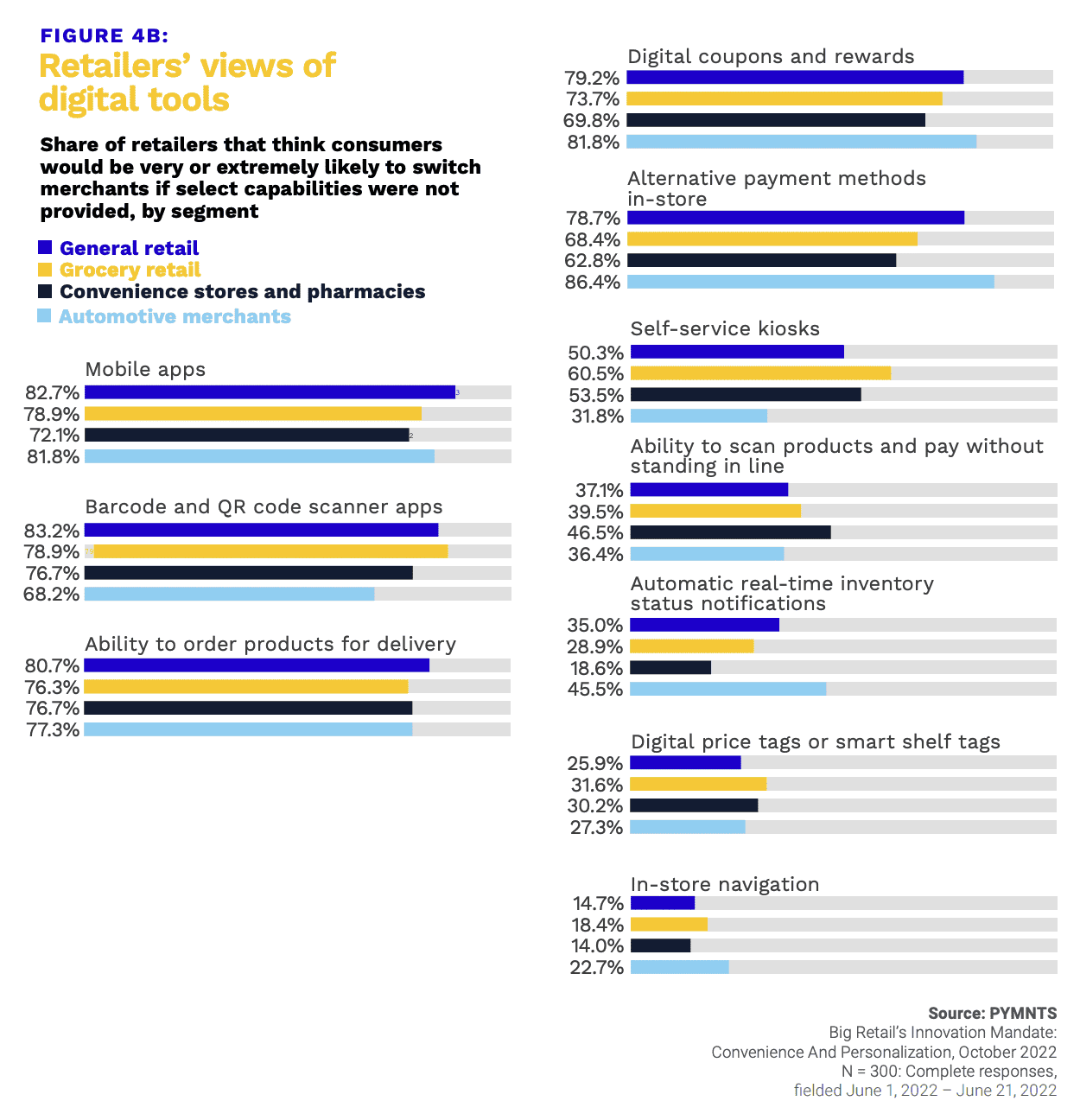Digital Coupons Boost Omnichannel Grocery Sales in Face of Inflation

As consumers look to get their food needs met in the face of sky-high inflation, digital coupons are proving essential for driving continued engagement.
BJ’s Wholesale Club, for one, noted earlier this month on a call discussing the retailer’s third-quarter financial results that “digitally enabled” sales rose 43% year over year, helped by the brand’s push to move coupons online.
“Five years ago, we were worried about the fact that our primary promotional product was paper coupons, and nobody loves paper coupons,” President and CEO Bob Eddy said. “Now, maybe three-quarters of our promotion is done digitally. We’ve made tremendous strides both in product promotion and convenience as we’ve invested in digital, and we’ll continue to do that. The members that engage with us digitally are our best members.”
Grocers are, for the most part, in agreement that digital coupons and rewards are essential to maintaining consumers’ loyalty. Research from PYMNTS’ study “Big Retail’s Innovation Mandate: Convenience and Personalization,” created in collaboration with ACI Worldwide, found that 74% of grocers think that consumers would be very or extremely likely to switch merchants if digital coupons and rewards were not provided.
 Take Netherlands-based multinational grocery retailer Ahold Delhaize, which is seeing its discounting efforts via its rewards programs pay off. In a presentation accompanying its third-quarter 2022 earnings release earlier this month, the grocery giant said that it has been focusing on “delivering personalized value through our digital omnichannel loyalty programs.”
Take Netherlands-based multinational grocery retailer Ahold Delhaize, which is seeing its discounting efforts via its rewards programs pay off. In a presentation accompanying its third-quarter 2022 earnings release earlier this month, the grocery giant said that it has been focusing on “delivering personalized value through our digital omnichannel loyalty programs.”
These efforts are indeed driving sales. Per the presentation, the grocer’s United States arm, ADUSA, has seen its loyalty programs bring in more than $1.5 billion in incremental sales so far this year. This strong performance was driven by a 50% increase in personalized offers to U.S. customers, totaling some 8 billion in different targeted ads and promos.
Grocery shoppers expect to be rewarded with these kinds of offers. According to data from PYMNTS’ study “Decoding Customer Affinity: The Customer Loyalty to Merchants Survey 2022,” created in collaboration with Toshiba Global Commerce Solutions, 42% of grocery shoppers stated that the availability of loyalty programs with rewards they like would improve their loyalty to merchants.
Additionally, implementing easy-to-use coupons can be key to driving digital adoption amid inflation. In a recent interview with PYMNTS, Barbara Connors, vice president of commercial insights at 84.51°, the marketing insights subsidiary of grocery giant Kroger, shared how increasing cost-sensitivity affects adoption of eCommerce channels.
“We know that very price sensitive customers are those that have lower engagement with eCommerce and are lower on the adoption curve, and those are the customers that are most likely to go into a store,” Connors said. “And one of the reasons is because they are looking for sales, deals and coupons, and it is easier for them to do that in-store than online.”
Moreover, consumers’ self-reports confirm that digital coupons are essential for many, per research from PYMNTS’ study “Satisfaction in the Age of eCommerce: How Trust Helps Online Merchants Build Customer Loyalty,” created in collaboration with eCommerce fraud management platform Riskified. The report noted that 35% of consumers cited coupons, discounts and promotions as important when shopping with online grocers.